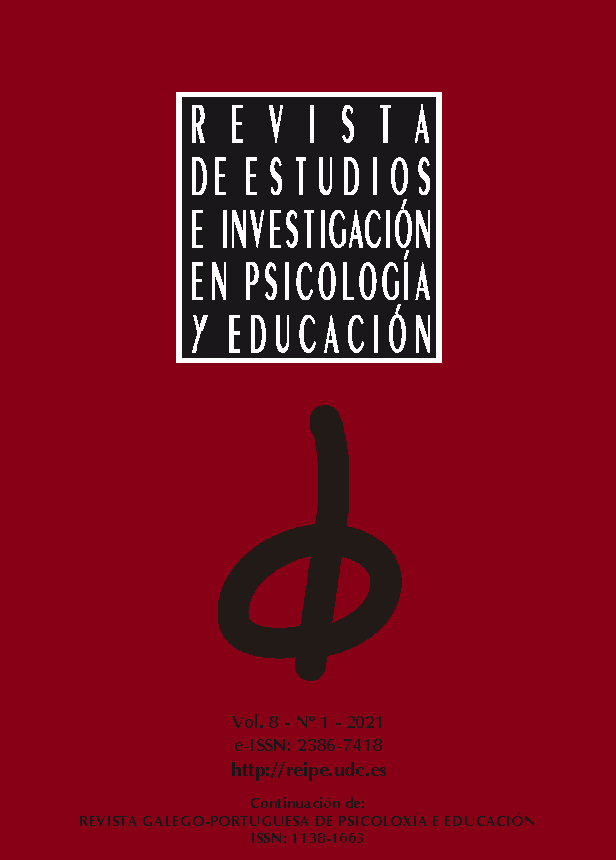Perspectives on child participation in the educational environment
Main Article Content
Abstract
Children's participation is becoming more prominent in educational discourses. However, the connection between speeches and practices is not always consistent. This article, therefore, examines the conceptions and practices of early childhood and primary school teachers regarding children’s participation in the teaching-learning process. The study uses a qualitative methodology consisting of interviews with four early childhood teachers and five first-cycle primary school teachers in order to learn more about their understanding of and attitudes towards child participation, how they incorporate child participation into their organisation of the educational environment, and the obstacles to creating a more participatory classroom. The data collected confirmed the importance of child participation in educational settings, but revealed certain differences between the two groups in relation to their attitudes to child participation and teaching practices in this regard. The conception of child participation by early childhood teachers was found to consist of listening to the children’s motivations and needs, and treating them as active agents, although this implementation is not very explicit. In the case of first-cycle primary school teachers, pupil participation was viewed mainly in terms of asking and answering questions.
Keywords:
Downloads
Article Details
References
BAE, Berit (2016). O direito das crianças a participar - desafios nas interações do quotidiano. Da Investigação às Práticas, 6 (1), 7-30. https://doi.org/10.25757/invep.v6i1.107
BERTHELSEN, Donna, & BROWNLEE, Joanne (2005). Respecting children's agency for learning and rights to participation in child care programs. International Journal of Early Childhood, 37, 49-60. https://doi.org/10.1007/BF03168345
CLARK, Alison (2005). Ways of seeing: Using the Mosaic approach to listen to young children's perspective. In Alison Clark, Anne Tine Kjørholt & Peter Moss (Eds.) Beyond Listening: Children's Perspectives on Early Childhood Services (pp. 29–49). Bristol: Policy Press. https://www.sagepub.com/sites/default/files/upm-binaries/43997_9781446207529.pdf
Despacho n.º 6478/2017 de 26 de julho. Diário da República n.º 143/2017, Série II de 2017-07-26. Lisboa. Gabinete do Secretário de Estado da Educação. https://dre.pt/application/conteudo/107752620
ECHEVERRÍA, Beatriz; LÓPEZ-LARROSA, Sílvia; & MENDIRI, Paula (2020). Aplicación de un programa de educación socio-emocional para alumnado de Primaria. Revista de Estudios e Investigación en Psicología y Educación, 7(2), 174-183. https://doi.org/10.17979/reipe.2020.7.2.7101
FERNANDES, Natália (2019). Infância e o Direito à Educação: dos ditos aos interditos. Revista entreideias: educação, cultura e sociedade, 8 (2), 11-26. https://doi.org/10.9771/re.v8i2.28749
GRAHAM, Anne, & FITZGERALD, Robyn (2010). Progressing children’s participation: Exploring the potential of a dialogical turn. Childhood, 17, 343-359. https://doi.org/10.1177/0907568210369219
HOHMANN, Mary, & WEIKART, David (2011). Educar a criança. Lisboa: Fundação Calouste Gulbenkian.
LANSDOWN, Gerison (2010). The realization of children’s participation rights: Critical reflections. In Barry Percy-Smith, & Nigel Thomas (Eds.), A Handbook of Children and Young People’s Participation: Perspectives from Theory and Practice (pp. 11-23). London: Routledge. https://doi.org/10.4324/9780203871072
LANSDOWN, Gerison (2011). Every child’s right to be heard: A resource guide on the UN Committee on the rights of the child general comment No. 12. London: Save the Children UK. Disponível em: https://resourcecentre.savethechildren.net/library/every-childs-right-be-heard-resource-guide-un-committee-rights-child-general-comment-no-12
MäKITALO, Åsa (2016). On the notion of agency in studies of interaction and learning. Learning, Culture and Social Interaction, 10, 64–67. https://doi.org/10.1016/j.lcsi.2016.07.003
MASCADRI, Julia; BROWNLEE, Joanne LUNN; JOHANSSON, Eva; SCHOLES, Laura; WALKER, Sue; & BERTHELSEN, Donna (2021). Children’s perspectives on why and when teachers listen to their ideas: Exploring opportunities for participation in the early years of school. International Journal of Educational Research, 107. https://doi.org/10.1016/j.ijer.2021.101747
MORAES, Bianca Mota de; MOURAZ, Ana; & COSME, Ariana (2017). A participação dos alunos nos projetos de melhoria das escolas. Revista de Estudios e Investigación en Psicología y Educación, (05), 316-321. https://doi.org/10.17979/reipe.2017.0.05.2824
O’KANE, Claire (2013). Children’s participation in the analysis, planning and design of programmes: A guide for Save the Children staff. London: The Save the Children Fund. https://resourcecentre.savethechildren.net/node/7768/pdf/children_participation_in_programming_cycle.pdf
OLIVEIRA-FORMOSINHO, Júlia, & FORMOSINHO, João (2013). Pedagogia-em-Participação: A perspectiva educativa da associação da criança. Porto: Porto Editora.
OLIVEIRA-FORMOSINHO, Júlia, & GÂMBOA, Rosário (orgs.). (2011). O trabalho de projeto na pedagogia-em-participação. Porto: Porto Editora.
SARMENTO, Manuel; FERNANDES, Natália; & TOMÁS, Catarina (2019). Figuras da criança na sociologia da infância em Portugal. Sociedad e Infancias, 1, 39-59. https://doi.org/10.5209/SOCI.56363
SHERIDAN, Sonja, & SAMUELSSON, Ingrid Pramling (2001). Children’s conceptions of participation and influence in preschool. Contemporary Issues in Early Childhood, 2, 164–94. https://doi.org/10.2304%2Fciec.2001.2.2.4
SILVA, Brigite, & CRAVEIRO, Clara (2014). O portefólio como estratégia de avaliação das aprendizagens na educação de infância: Considerações sobre a sua prática. Revista Zero-a-Seis, 29, 33–53. https://doi.org/10.5007/1980-4512.2014n29p33
SOUSA, Joana, LOIZOU, Eleni, & FOCHI, Paulo (2019). Participatory pedagogies: Instituting children’s rights in day to day pedagogic development. European Early Childhood Education Research Journal, 27, 299-304. https://doi.org/10.1080/1350293X.2019.1608116
TOMÁS, Catarina (2007). Participação não tem idade: Participação das crianças e cidadania da infância. Contextos & Educação, 22, 45-68. https://doi.org/10.21527/2179-1309.2007.78.45-68
UNICEF (1989). Convenção sobre os direitos da criança. Disponível em: https://www.unicef.pt/actualidade/publicacoes/0-a-convencao-sobre-os-direitos-da-crianca/
VASCONCELOS, Teresa (2015). Do discurso da criança “no” centro à centralidade da criança na comunidade. Investigar em Educação, II, 4, 25-42. http://pages.ie.uminho.pt/inved/index.php/ie/article/view/96
VEIGA, Renata, & FERREIRA, Manuela (2017). Entre as práticas pedagógicas e as culturas infantis: contributo para a compreensão da participação das crianças em um Jardim de Infância. Cadernos de Estudos Sociais, 32 (2), 11-29. https://periodicos.fundaj.gov.br/CAD/article/view/1695



